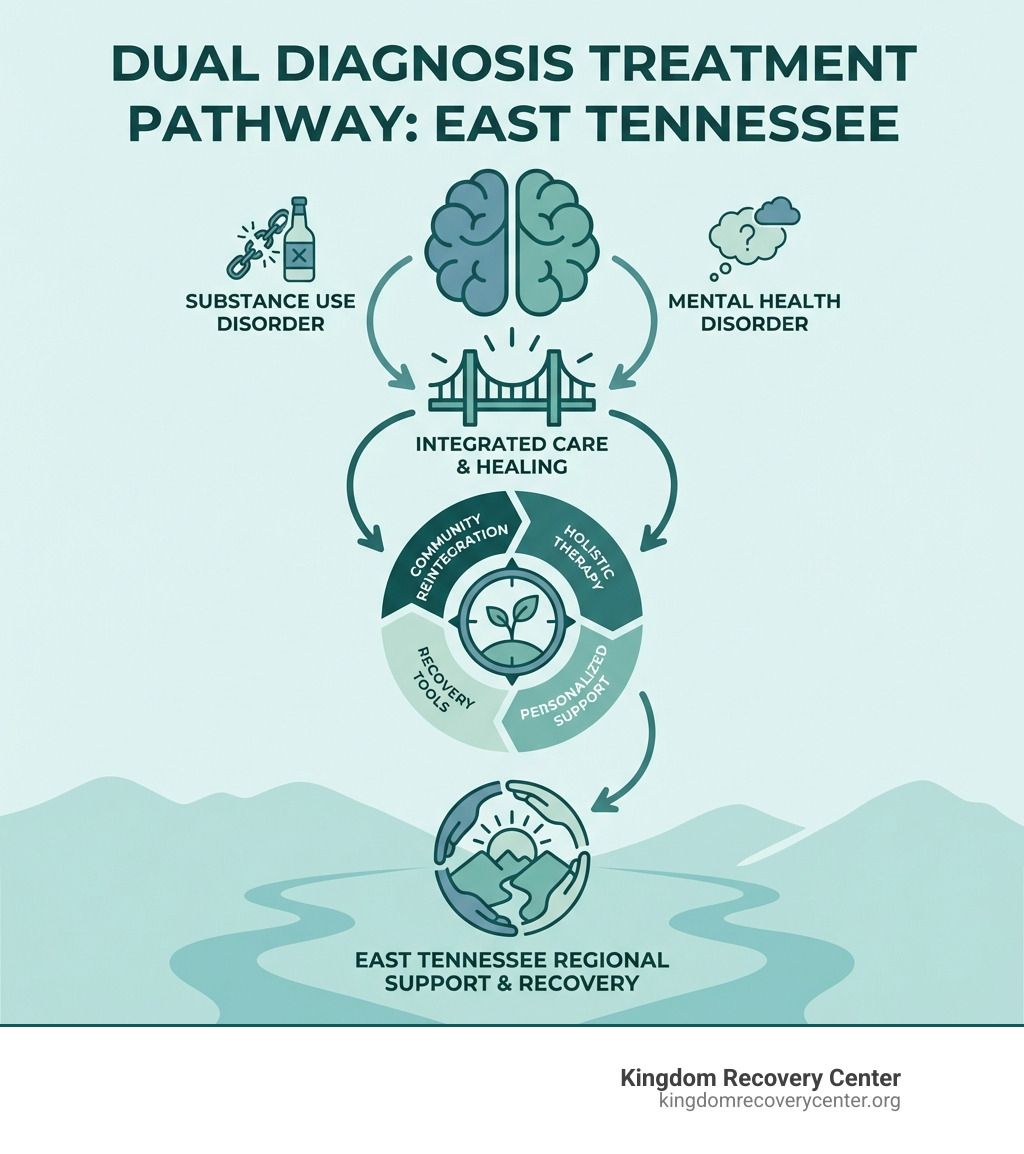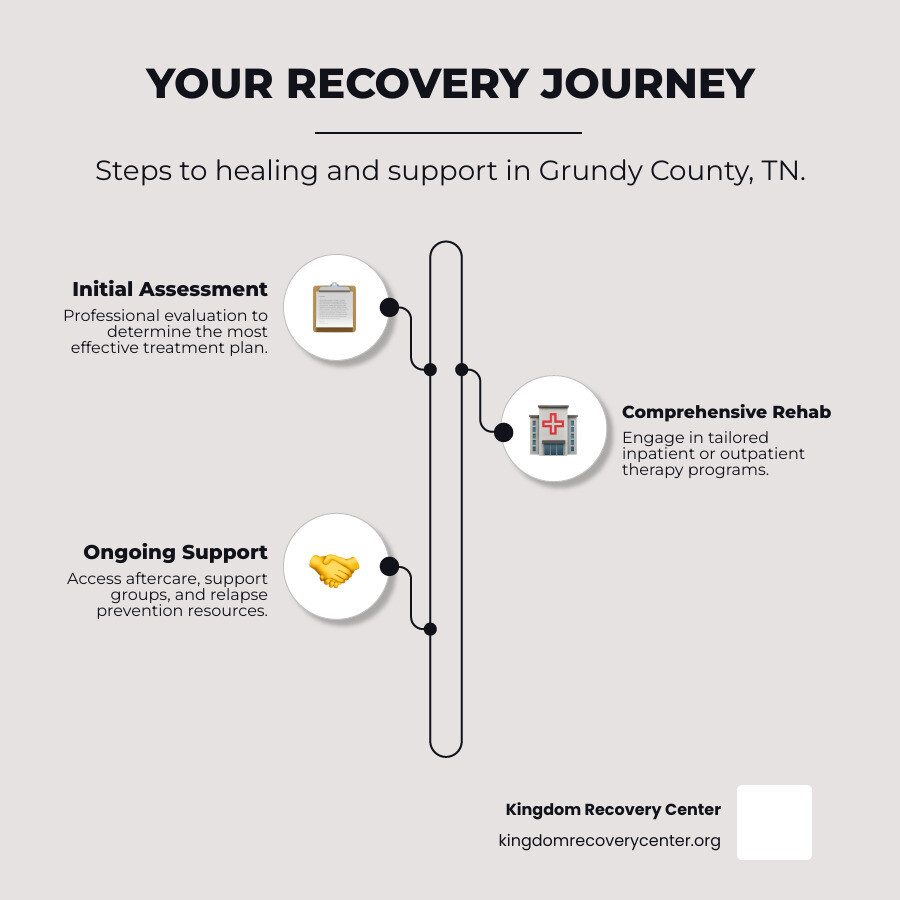
Embracing Community in the Journey of Addiction Recovery

Overcoming Addiction Through the Strength of Community Support
Are you struggling to find reliable support during your journey towards addiction recovery? This article explains how community support forms the backbone of successful recovery programs, detailing available support groups and the involvement of family and friends. Readers will learn effective strategies to access the help they need while reshaping their outlook on treatment. By addressing common challenges in addiction recovery, this guide provides practical solutions for individuals seeking a solid, supportive network in their fight against addiction.
Key Takeaways
- community support strengthens personal growth in addiction recovery
- group interactions build trust and enhance accountability
- accessible online platforms offer quick, practical recovery guidance
- peer networks provide practical advice and continuous motivation
- integrated resources boost overall stability in treatment
Understanding the Concept of Community Support in Recovery

This section explains community support in addiction treatment, outlining its role in personal growth and recovery dynamics. It covers topics such as the connection between communal bonds and individual progress, the science behind group effectiveness, and practical aspects of treatment approaches like medication, methadone, and principles from Buddhism. This understanding sets the stage for rich insights into effective recovery strategies.
Defining Community Support in Addiction Treatment
The term “community support” in addiction treatment refers to a network of individuals and resources that work together to guide recovery, including efforts from social work professionals who implement both traditional and innovative strategies. The approach often incorporates tools such as medicare services and online resources, playing a role in addressing opioid dependency while balancing aspects of socialism through shared responsibilities and commitment.
In this framework, community support means collaborative efforts that address the multifaceted needs of individuals overcoming addiction. It emphasizes practical strategies, such as tailored social work interventions and accessible medicare benefits, while leveraging online platforms to facilitate communication and integrate resources for opioid recovery.
The Connection Between Community and Personal Growth
The connection between community and personal growth manifests through tailored support networks that assist each patient overcoming addiction. Practical group meetings and crystal meth anonymous sessions create an environment where individuals receive social support crucial for healing, making combined efforts in drug recovery more effective.
Community involvement fosters accountability and empowerment, allowing each patient to gain insights and build resilience. Active participation in social support groups and structured meetings not only aids in navigating drug recovery but also inspires a renewed focus on personal growth and long-term wellness.
The Science Behind Community Support Effectiveness
Recent studies in north dakota show that community support offers measurable benefits for those recovering from addiction. Research confirms that emotional support from peers, such as participants from narcotics anonymous groups, reduces the risk of relapse by creating a framework of accountability and understanding that resonates with individuals seeking secular approaches to recovery.
Clinical observations indicate that the integration of community resources, including group meetings and practical support systems, facilitates lasting change and stability. Strategic application of communal efforts not only provides emotional support but also underscores the role of individualized guidance in mitigating risk, a finding that appeals to those familiar with narcotics anonymous programs.
Types of Support Groups Available for Addiction Recovery

Support groups vary by focus, featuring twelve-step programs known for their community impact, peer support networks that reduce stress and cater to opiate recovery, accessible online groups offering round-the-clock help, and faith-based options that provide a sense of belonging, including resources for LGBTQ individuals. These formats offer practical, varied pathways to overcoming addiction.
Twelve-Step Programs and Their Community Impact
Twelve-step programs offer clear, structured support that integrates insights from university research and nursing practices to address the challenges of addiction. The method helps individuals confront the feelings of shame tied to the disease while fostering a community environment essential for recovery.
Clinical evidence shows that twelve-step meetings enable participants to rebuild trust and overcome isolation by sharing practical experiences and actionable steps. This strategy simultaneously supports personal accountability and professional guidance with research-backed principles including university research findings, nursing oversight, and shared experiences with shame and the disease:
- Structured group interactions
- Peer accountability
- Practical recovery strategies
- Inclusive support for managing shame and disease
Peer Support Networks and Their Role
The role of peer support networks serves as a dedicated space for individuals to share challenges and achievements in their recovery journey. These networks offer a goal-oriented approach that integrates lifering secular recovery methods with motivational enhancement therapy practices, fostering a sense of empowerment among participants:
| Aspect | Description |
|---|---|
| Space | A safe gathering area that encourages open communication and supportive interactions. |
| Goal | Clear objectives that help individuals progress steadily through lifering secular recovery strategies. |
| Motivational Enhancement Therapy | Actionable practices designed to boost empowerment and commitment to recovery. |
Peer support networks enable members to build trusted relationships and practical recovery plans that address individual needs. The structured yet adaptable approach, emphasizing motivational enhancement therapy, empowers participants to achieve their goals and maintain long-lasting progress in lifering secular recovery.
Online Support Groups and Their Benefits
Online support groups offer individuals a reliable platform to share personal experiences and practical advice on managing daily challenges. These groups foster a sense of empathy while addressing feelings of loneliness, making it easier for individuals to seek help and connect through email exchanges and scheduled online interactions.
Some platforms, including those based in California, provide structured programs that emphasize regular exercise and open dialogue to support recovery. They offer practical strategies that help participants build resilience and establish trusted routines, including guidance on healthy practices and scheduled email check-ins:
- Regular virtual meetings
- Email outreach programs
- Structured exercise sessions
- Empathy-driven discussions
Faith-Based Support Options
Faith-based support options provide a trusted setting for individuals recovering from addiction to find accountability and practical guidance. In communities such as Ohio, these programs offer a blend of spiritual support and health care resources that address aspects of the opioid epidemic while promoting healing through compassionate engagement.
These support programs emphasize the importance of consistent accountability and community partnership to enhance personal recovery journeys. By integrating faith-based principles with practical health care strategies, participants receive targeted support that reinforces healing and strengthens their commitment to overcoming addiction.
How Community Drives Successful Rehab Programs

Community involvement supports rehabilitation practices through partnerships with local organizations and proven community-driven programs. Detailed case studies show successful initiatives like women for sobriety groups and art therapy sessions that connect individuals with a higher power while addressing alcohol recovery challenges. These examples underline how community-based approaches boost confidence and foster lasting recovery.
Community Involvement in Rehabilitation Practices
Community involvement in rehabilitation practices plays a key role in influencing positive behavior changes among individuals recovering from addiction, with programs in illinois and other parts of the united states offering actionable insights through smart recovery initiatives. Such programs integrate local resources and expertise to address the disorder effectively, providing a clear pathway toward stability and improved well-being.
Partnerships between community organizations and rehabilitation centers bolster recovery strategies by actively engaging participants in structured smart recovery sessions. This collaborative approach, practiced widely across the united states, ensures that individuals experiencing addiction-related disorders receive consistent guidance and support that significantly improves their overall behavior and commitment to recovery.
Case Studies of Successful Community-Driven Programs
Case studies reveal that community-driven programs can significantly reduce the desire for harmful habits by offering targeted therapy and practical life skills training. These programs address issues such as gambling and substance misuse while incorporating support from groups like pills anonymous to provide actionable guidance and accountability:
| Program Feature | Focus Area | Outcome |
|---|---|---|
| Structured Therapy Sessions | Life Skills | Reduced harmful desire |
| Peer Accountability Groups | Gambling Awareness | Increased personal responsibility |
| Support from Pills Anonymous | Substance Misuse Recovery | Steady progress in rehabilitation |
Another review of community initiatives demonstrates that integrating therapy, life skills training, and specialized support groups can guide individuals toward a stable recovery. These initiatives, which include sessions on managing gambling behavior and support from pills anonymous, enable participants to build resilience and practical strategies to overcome addiction effectively.
Building Partnerships With Local Organizations
Local organization partnerships provide a robust framework for overcoming addiction by integrating tailored training and structured support systems that benefit both the brain and overall sobriety. The approach incorporates practical narcotic management techniques and specialized training protocols, ensuring that participants receive actionable insights and enduring benefits:
| Partnership Element | Focus Area | Benefit |
|---|---|---|
| Narcotic Management | Safety Practices | Reduced dependency risks |
| Organization Collaboration | Training Support | Enhanced recovery outcomes |
| Sobriety Guidance | Personalized Programs | Improved brain rehabilitation |
Local organizations collaborate to provide specialized training and structured guidance that effectively supports individuals in maintaining sobriety. This initiative integrates narcotic handling practices with dedicated brain training, ensuring each participant gains access to critical resources and actionable support for a sustained recovery journey.
The Role of Family and Friends in Addiction Recovery

Engaging loved ones builds confidence and celebrates recovery, while setting healthy boundaries and communicating effectively offer education to all involved. By addressing fear and ensuring each person feels understood, the section provides practical insights into how family and friends can support recovery through clear communication and realistic expectations.
Engaging Loved Ones in the Recovery Process
Family and friends provide consistent support during recovery by helping establish a safe space for dialog and reflection, where individuals can gain valuable knowledge to counter relapse triggers. This support often incorporates practices such as meditation and structured routines that promote mental clarity and faith in the recovery process:
- Creating a secure and understanding environment
- Incorporating regular meditation sessions
- Sharing actionable knowledge on relapse prevention
- Upholding personal faith in the healing journey
Engaging loved ones in recovery contributes to accountability and ongoing motivation, ensuring each person benefits from practical strategies and community reinforcement. Their involvement is a clear display of care, making recovery a shared effort built on consistent communication and dependable support.
Setting Healthy Boundaries for Support
Establishing clear limits helps family and friends create a supportive environment for those overcoming substance abuse by ensuring that interactions remain focused and respectful. Clear boundaries may include agreeing on guidelines for group therapy in tn sessions, sharing useful information, and even integrating music therapy to foster calm and measured support during recovery.
Maintaining a balanced approach prevents over-involvement while still offering critical care through moderation management strategies that benefit all parties. Setting realistic boundaries assists loved ones in practicing healthy engagement, contributing to effective recovery while providing practical examples of sustainable support in addressing substance abuse.
Communicating Effectively About Recovery
Clear and calm dialogue about recovery promotes understanding and mitigates guilt, allowing family and friends to support loved ones pursuing a robust rehab journey. This recovery model emphasizes the value of regular conversations, support groups, and secular organizations for sobriety to guide individuals toward sustainable progress.
Effective communicative approaches in recovery stress actionable insights and structured discussions, which help dispel misconceptions and foster trust among community members:
- Establish clear expectations around progress
- Integrate practical elements from traditional rehab protocols
- Leverage support groups for shared experience and encouragement
- Utilize secular organizations for sobriety to build resilience
- Address and reduce feelings of unwarranted guilt
Success Stories Highlighting Community Support in Action

Individual recovery journeys enhanced by community support are unfolding through credible testimonials from support group members. Their feedback highlights how peer support and structured helpline assistance foster new lifestyle choices and sustained abstinence. This section details real-life examples and practical insights on how collective support leads to lasting change.
Individual Recovery Journeys Enhanced by Community
The journey to recovery is enhanced by community support where individuals receive guidance from a diverse network of knowledgeable professionals, including physicians and dedicated caregivers who emphasize practical recovery strategies. Each participant experiences a transformation as they integrate a caring philosophy with a focus on spirituality and secure insurance coverage, ensuring they have essential tools for long-term stability. Personal accountability, combined with professional advice, inspires confidence and builds resilience in overcoming the challenges of addiction.
Community-driven initiatives empower individuals by providing actionable insights and hands-on support, resulting in successful recovery stories that highlight the benefits of a unified approach to healing:
- Practical guidance from experienced caregivers
- Integrated support from physicians and insurance resources
- Enriching experiences that fuse philosophy and spirituality
This harmonized approach meets the diverse needs of those seeking to build a stable and fulfilling life post-addiction.
Testimonials From Support Group Members
The support group members shared their personal experience with a renewed sense of hope, detailing how engaging with community programs provided them with practical ways of coping with their challenges. They highlighted the role of the internet and platforms like Instagram in connecting with peers who understand their journey, giving immediate access to shared emotion and actionable strategies.
Members offered positive testimonials that explain how structured group interactions helped them manage stress and build resilience:
| Aspect | Detail |
|---|---|
| Experience | Clear examples of overcoming obstacles through shared guidance |
| Coping | Practical methods and step-by-step approaches taught via online sessions |
| Internet/Instagram | Real-time engagement that enhances understanding of collective emotion |
Their collected insights provide a roadmap that illustrates how community care results in sustainable progress.
How Collective Support Creates Lasting Change
Collective support empowers individuals to form trusted relationships that foster resilience and commitment in recovery:
| Support Element | Outcome |
|---|---|
| Peer Guidance | Improved accountability |
| Group Interactions | Strengthened commitment |
| Accessible Resources | Steady progress in recovery |
Collective support provides practical insights and encourages active engagement, guiding community members to adopt strategies that build lasting change and assist in overcoming addiction with confidence.
The Future of Community Support in Addiction Treatment

Trends in community-based strategies, new support group formats, and improved accessibility shape the next phase of recovery. The section outlines practical insights and expert perspectives on emerging methods that extend support networks, offer varied group interactions, and ensure that recovery resources remain within reach for all individuals seeking a healthier life.
Trends in Community-Based Strategies
The future of community support in addiction treatment witnesses a clear shift toward integrating technology with traditional group methods. Recent strategies combine secure online platforms with local gatherings to ensure immediate access to guidance and practical recovery resources, addressing individuals’ needs in real time.
Innovative community-based initiatives focus on creating accessible recovery networks and personalized support systems that align with evidence-based practices. These approaches use interactive digital tools and local interventions to foster a robust environment where every participant finds effective pathways toward a stable recovery.
Innovations in Support Group Formats
The evolving landscape of recovery centers prompts the development of new support group formats that utilize technology to complement face-to-face interactions. This integration produces secure online platforms and local small-group sessions that offer practical recovery guidance and real-time support:
- Secure online platforms for immediate peer connection
- Localized sessions for concise, actionable advice
- Structured interactions that promote collective accountability
Innovations in support group formats directly address the needs of individuals overcoming addiction by streamlining communication and offering targeted resources. These advancements provide clear pathways toward building resilience and sustaining recovery through coordinated community support.
The Importance of Accessibility in Community Support
Accessibility in community support ensures that individuals seeking addiction recovery can easily connect with vital resources and guidance. A focus on clear communication channels and user-friendly platforms enables those in need to quickly find assistance and practical advice for overcoming challenges, making the recovery process more efficient and less isolating.
By prioritizing accessible support services, recovery centers provide immediate assistance to individuals pursuing sustainable wellness. This approach removes barriers and delivers actionable information, empowering individuals to manage their journey with confidence and clarity while building a network of reliable community care.
Conclusion
Community support builds a robust framework that empowers individuals to overcome addiction. It offers practical guidance through structured group interactions, accessible resources, and peer-driven accountability. Community-driven initiatives foster resilience and personal growth by connecting individuals with knowledgeable professionals and compassionate caregivers. This approach transforms recovery pathways, enabling sustained progress and a healthier future.



